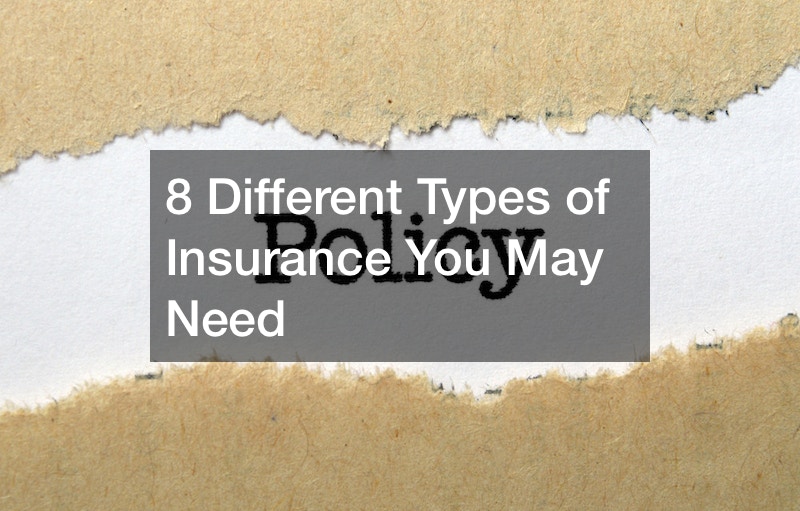
Home insurance is an essential purchase for any new homeowner. It provides financial protection for your home and personal property in the event of damage or loss due to a variety of covered perils, such as fire, theft, and natural disasters. However, with so many options and terms to consider, it can be overwhelming for new homeowners to understand the basics of home insurance. In this article, we’ll provide a comprehensive guide to home insurance basics for new homeowners.
Home Insurance Coverage

One of the most important things to understand about home insurance basics is the types of coverage available. There are three main types of coverage:
Homeowners Insurance: This type of insurance provides coverage for damage to your home and personal property, as well as liability protection in case someone is injured on your property.
Manufactured Home Insurance: This type of insurance is specifically designed for manufactured homes, and provides coverage for damage to the home and personal property, as well as liability protection.
Home Warranty: This type of insurance provides coverage for the repair or replacement of certain systems and appliances in your home, such as your HVAC system or appliances.
Choosing the right coverage for your home depends on a variety of factors, including the type of home, the location, and your personal needs. It’s important to speak with a home insurance agent to determine the best coverage for you.
Home Insurance Discounts
Another important aspect of home insurance basics for new homeowners to understand is the potential for discounts. Many insurance companies offer discounts for a variety of reasons, including:
Safety Discounts: Many insurance companies offer discounts for safety features in your home, such as smoke detectors, burglar alarms, and deadbolts.
Home Improvements: Some insurance companies offer discounts for certain home improvements, such as new roofing, residential plumbing, home window replacement and house painters. A home builder or roofer will be able to provide more guidance.
New Construction: If you purchase a new home from commercial builders, home builders or luxury home builders, you may be eligible for a discount.
Manufactured Home Community: Living in a manufactured home community may also qualify for a discount.
It’s important to ask your insurance agent about available discounts and how to qualify for them.
Home Insurance Claim Process

The final thing for new homeowners to understand about home insurance basics is the claims process. If you need to file a claim, the process will typically involve the following steps:
Contact Your Insurance Agent: The first step in the claims process is to contact your insurance agent and report the loss. They will provide you with the necessary forms and instructions for filing a claim.
Provide Documentation: You’ll need to provide documentation of the loss, such as photos of the damage and receipts for any stolen or damaged personal property.
Get Repairs Started: Some insurance companies may require you to get repairs started before they’ll release payment.
Receive Payment: Once the insurance company has reviewed your claim and determined the amount of the loss, they will release payment to you.
It’s important to understand the claims process in case you ever need to file a claim. Keep in mind that most insurance companies require you to report any damage or loss as soon as possible.
Home insurance provides financial protection for your home and personal property in the event of damage or loss due to a variety of covered perils. Homeowners have to choose from Homeowners Insurance, Manufactured Home Insurance, Home Warranty, and understand what discounts are available and how to qualify for them.
Home Insurance and Natural Disasters
Another important aspect of home insurance basics for new homeowners to understand is coverage for natural disasters. Natural disasters such as hurricanes, tornadoes, earthquakes, and floods can cause significant damage to homes and personal property. While most home insurance policies provide coverage for damage caused by natural disasters, it’s important to understand that certain types of natural disasters may not be covered or may require additional coverage.
Flood Insurance: Flood damage is not typically covered under a standard home insurance policy. If you live in a flood-prone area, it’s important to purchase a separate flood insurance policy.
Earthquake Insurance: Similarly, earthquake damage is not typically covered under a standard home insurance policy. If you live in an area prone to earthquakes, it’s important to purchase a separate earthquake insurance policy.
Windstorm Insurance: Damage caused by windstorms, such as hurricanes and tornadoes, is typically covered under a standard home insurance policy. However, if you live in an area prone to windstorms, it’s important to make sure your policy includes adequate coverage.
It’s important to understand that in some states, like Florida, the insurance companies are required by the state to offer windstorm and hurricane coverage. But in others, like California, the earthquake coverage is required to be offered by the insurance companies.
Home Insurance and Personal Liability

Personal liability coverage is another important aspect of home insurance basics for new homeowners to understand. This type of coverage provides financial protection in the event that someone is injured on your property and decides to sue you. Personal liability coverage typically includes:
Medical Payments: This coverage pays for medical expenses incurred by someone who is injured on your property.
Bodily Injury Liability: This coverage pays for damages awarded to someone who is injured on your property and sues you.
Property Damage Liability: This coverage pays for damages to someone else’s property caused by you or a member of your household.
It’s important to understand that personal liability coverage is not limited to injuries that occur inside your home. It also covers injuries that occur on your property, such as in your backyard or driveway.
Home Insurance and Additional Living Expenses
Another important aspect of home insurance basics for new homeowners to understand is coverage for additional living expenses. This type of coverage provides financial assistance if you are unable to live in your home due to damage or loss covered under your policy. Additional living expenses coverage typically includes:
Hotel expenses: This coverage pays for hotel expenses if you are unable to live in your home due to damage or loss covered under your policy.
Meals: This coverage pays for meals if you are unable to cook in your home due to damage or loss covered under your policy.
Temporary housing: This coverage pays for temporary housing if you are unable to live in your home due to damage or loss covered under your policy.
It’s important to understand that additional living expenses coverage is only available if you are unable to live in your home due to damage or loss covered under your policy. It is not intended to cover expenses related to normal maintenance or repairs.
Home Insurance and Risk Management
Risk management is an important aspect of home insurance basics for new homeowners to understand. It involves identifying potential risks to your home and personal property and taking steps to mitigate or eliminate those risks. This can include installing safety features, such as smoke detectors and burglar alarms, and making sure your home is properly maintained.
Security Measures: Installing security measures such as burglar alarms, security cameras, and deadbolts can not only help deter burglars but also help lower your home insurance premium.
Home Maintenance: Regularly maintaining your home, including regular roofing and plumbing inspections, can help prevent damage from occurring and also help lower your home insurance premium.
Natural Disaster Preparedness: Living in an area that is prone to natural disasters, such as hurricanes or earthquakes, it’s important to take steps to prepare for those disasters. This can include having a disaster plan in place, securing loose items in your yard, and ensuring that your home is properly anchored to the foundation.
Proper Insurance Coverage: Proper insurance coverage is important to ensure that your home and personal property are protected in the event of damage or loss. It’s important to understand the types of coverage available and to make sure you have adequate coverage in place.
It’s important to understand that risk management is an ongoing process, and new homeowners should regularly review their home insurance coverage and update it as needed. This can help ensure that their home and personal property are properly protected in the event of damage or loss.
Home Insurance and Consumer Advocacy

Another important aspect of home insurance basics for new homeowners to understand is consumer advocacy. This involves understanding your rights as a policyholder and being an informed consumer when it comes to home insurance basics.
Know Your Policy: It’s important to understand the terms and conditions of your policy, including the types of coverage available and the limits of that coverage.
Compare Quotes: Don’t be afraid to shop around and compare quotes from different insurance companies. This can help you find the best coverage at the best price.
Understand the Claims Process: Knowing the claims process and the documentation required can help ensure that your claim is processed quickly and efficiently.
File a Complaint: If you have a complaint about your insurance company or agent, don’t hesitate to file a complaint with your state’s insurance department.
As a new homeowner, it’s important to understand your rights and to be an informed consumer when it comes to home insurance basics. By taking the time to understand your policy, compare quotes, and file a complaint if necessary, you can help ensure that your home and personal property are properly protected.
In conclusion, home insurance is an essential purchase for any new homeowner. It provides financial protection for your home and personal property in the event of damage or loss due to a variety of covered perils. It’s important to understand the types of coverage available, the discounts that may be available, and the claims process. Additionally, it’s important to understand the importance of risk management, natural disaster preparedness and consumer advocacy. By understanding these aspects, new homeowners can make informed decisions and protect their biggest investment, their home. It’s also important to work with a reputable and experienced insurance agent or broker who can provide guidance and help new homeowners understand the potential risks they may face based on the location of their home and the natural disasters that are common in the area.
It’s important to understand the types of coverage available, such as homeowners insurance, manufactured home insurance, and home warranties. Discounts are available for certain home improvements, new construction, and living in a manufactured home community. The claims process is also an essential aspect of home insurance basics for new homeowners to understand. Additionally, it’s important to understand the coverage for natural disasters and personal liability, as well as additional living expenses coverage.
It’s also important for new homeowners to work with a reputable and experienced insurance agent or broker to help them navigate the home insurance landscape. They can provide guidance on the types of coverage available, the discounts that may be available, and the claims process. In addition, they can also help new homeowners understand the potential risks they may face based on the location of their home and the natural disasters that are common in the area.
It is also important to keep in mind that insurance companies are regulated by the state, so it’s important to research the company’s financial stability and their customer service record. This can be done by checking their ratings with companies like A.M. Best, Moody’s and Standard & Poor’s. It is also important to understand the terms and conditions of the policy and to review it regularly, especially if there are any changes to your home or personal circumstances.
In summary, home insurance is a vital purchase for any new homeowner. It provides financial protection for your home and personal property in the event of damage or loss due to a variety of covered perils. It’s important to understand the types of coverage available, the discounts that may be available, and the claims process. Working with a reputable and experienced insurance agent or broker can provide guidance and help new homeowners understand the potential risks they may face based on the location of their home and the natural disasters that are common in the area. It’s also important to understand the terms and conditions of the policy and to review it regularly, especially if there are any changes to your home or personal circumstances.



